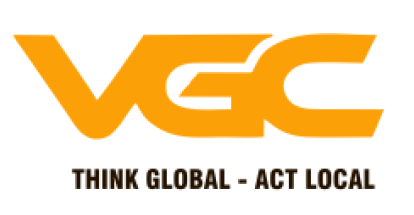Policy personnel: As of March 6, 2020, the COVID-19 has appeared in 89 countries and territories making 98,588 people infected and 3,388 deaths (1).
The epidemic situation is growing daily in terms of the number of infections and the number of affected countries.
Nó đã ảnh hưởng nghiêm trọng đến nền kinh tế thế giới, do đó hầu hết các chính phủ phải công bố các kế hoạch hỗ trợ kinh tế và hỗ trợ doanh nghiệp về thuế, lãi suất và các hỗ trợ kỹ thuật khác.
In Vietnam, many manufacturing enterprises suffer from shortage of serious input materials that affect production Policy personnel.
Some businesses operating in the service sector such as transportation, tourism and dining have quite high rates of revenue decline from the same period of the previous year.
Many companies in financial difficulties, no revenue still have to pay the rental of factories, business premises, interest bank loans and personnel costs.
Before the epidemic situation could not predict when it will end, many businesses have been making plans to cut costs, of which the cost of human resources is making businesses most headache.
Because if the employers dismissed the employee, they are afraid of legal risks and shortage of human resources after the disease storm, as well as affecting their reputation in the labor market.
At this time, Business owners need to find a complete solution to survive the difficulties and keep the development resources after the epidemic storm.
The agreements to share difficulties
Frank discussion is a solution to solving difficult situations that modern society prefers to perform unilaterally from one side. In the context of the epidemic, the business is severely affected, so employees also understand the difficult situation of the business owner. The options below are arranged in increasing order of impact on employees for business owners to choose Policy personnel.
The agreements on termination of labor contract:
On the basis of voluntary agreement, the company may negotiate with employees a financial support in its capacity for employees to agree to end the labor relations and seek new opportunities.
This approach is suitable in the case of business owners who consider about business suspension, dissolution or bankruptcy due to unable to revive the business or need to cut down a portion of the human resources. Article 36.3 Labor Law 2012 allows parties to freely agree to terminate the labor contract with supporting financial or non.
The
method of postponing the implementation of labor contracts for a period:
The company negotiates with the employee to pay a sum or not to pay if the worker agrees. This approach will help businesses maintain labour relations with employees as well releasing the obligation to pay for wages, welfare, insurance and personal income tax Policy personnel.
It also helps businesses do not have to perform re-recruitment of workers as well helping workers have a job opportunity in the future at the continuing implementation of the labor contract. (According to Article 32 Labor Code 2012)
The agreements on payment of severance pay:
According
to Article 98.3 Labor Code 2012, the company is entitled to negotiate with
employees to pay severance pay. Accordingly, the severance pay may be agreed
but not lower than the regional minimum wage in 2020 according to Decree
90/2019/ND-CP (Region I: VND 4,420,000/month; Region II: VND 3,920,000.
VND/month; Region III: VND 3,430,000/month; Region IV: VND 3,070,000/month).
The agreements to reduce working hours and reduce wages:
This approach will balance the interests of the workers and the company according to the situation of the epidemic and production capacity of the company. In order to implement this approach, the company may rely on article 35 BLLĐ 2012 to request a modification, additional labor contract or contract addendum to change working hours and wages for a consistent period of time with the situation of the epidemic and the company’s business plan. Policy personnel.
The right to be cut personnel to survive
According to Article 38.1. (c) Labor Law 2012, the employer is entitled to unilvocally terminate the contract of employment “c/ If, as a result of natural disaster, fire or another force majeure event as prescribed by law, the employer, though having applied every remedial measure, has to scale down production and cut jobs;”
This regulation is guided by Article 12.2 Decree 05/2015/ND-CP; accordingly, the term “other force majeure” belongs to one of the following circumstances: (i) Enemy-inflicates destruction, epidemics; (ii) Relocation or narrowing of the production and business sites, at the request of competent State agencies.
With the Ministry of Health issued Decision No. 219/QD-BYT on 29/1/2020 supplementation of acute respiratory tract infections due to new strains of Corona-induced viruses (called COVID-19) to the list of infectious diseases of group A (especially dangerous infectious diseases capable of very fast transmission, widespread spreading and high mortality or unknown causative agent) and the Prime Minister issued the decision No. 173/QD-TTg dated 01/02/2020 on the publication of acute respiratory viral epidemic caused by new strains of Corona virus; then the company has a legal basis determining the case of COVID-19 disease as force majeure in accordance with the current Labor Law (required conditions).
According to the above regulations, the company also needs to prove that it has sought all remedies but still forced to reduce production and reduce workplaces.
This is the subjective, internal factor of the business, therefore, the business also needs to explain to the State or court agency in case the worker does not agree with the company’s unil-aware decision.
This sufficient condition will be able to convince the agency to issue a judgment if there are evidence such as a decline in revenues, the company’s cash source is insufficient to pay if it continues to employ employees.
External factors such as whether the company is unable to acquire input materials, the output market is narrowed, it must take measures to self-restrict business development in accordance with the administrative decision of the State as not to go into the epidemic region…etc.
When it
meets the required and sufficient conditions, the
enterprise completely has enough legal ground to implement the right to cut personnel or/and to reduce the cost of human resources in difficult times caused by
the epidemic.
Entrepreneurship and
Business ethics
It did not deny that at this period of time the thousands of businesses were suffered about a decline in revenues, many financial burdens.
If business owners can find a difficult remedy at this point to keep the workforce intact, many employees is assured of income, indirectly stabilizing the production force as well building the employer image in the labor market.
At the same time, keeping human resources at this time will help build a better labor relationship and do not take the cost of recruiting and training new people when the epidemic is over.
One of
the ways to create value for many departments, departments and idle workers at
that time is that performing professional training,
soft skills, workflow
improvement, focus on researching new products, new technologies, testing work
methods online, work at home… etc. In the
period of the digital economy, the most valuable strength and property of the
business is talent, the human resource has been a mature team.
This is
the time when entrepreneurial spirit and business ethics need to be promoted
and challenged most intensely as well the time to eliminate businesses and entrepreneurs who are not
capable enough to hold the game on the market.
(1) According to information from the Ministry of Health at 15:50 on 06/03/20 https://ovov.moh.gov.vn/
*Le
Trong Them Lawyer, LTT & Lawyers law Firm













